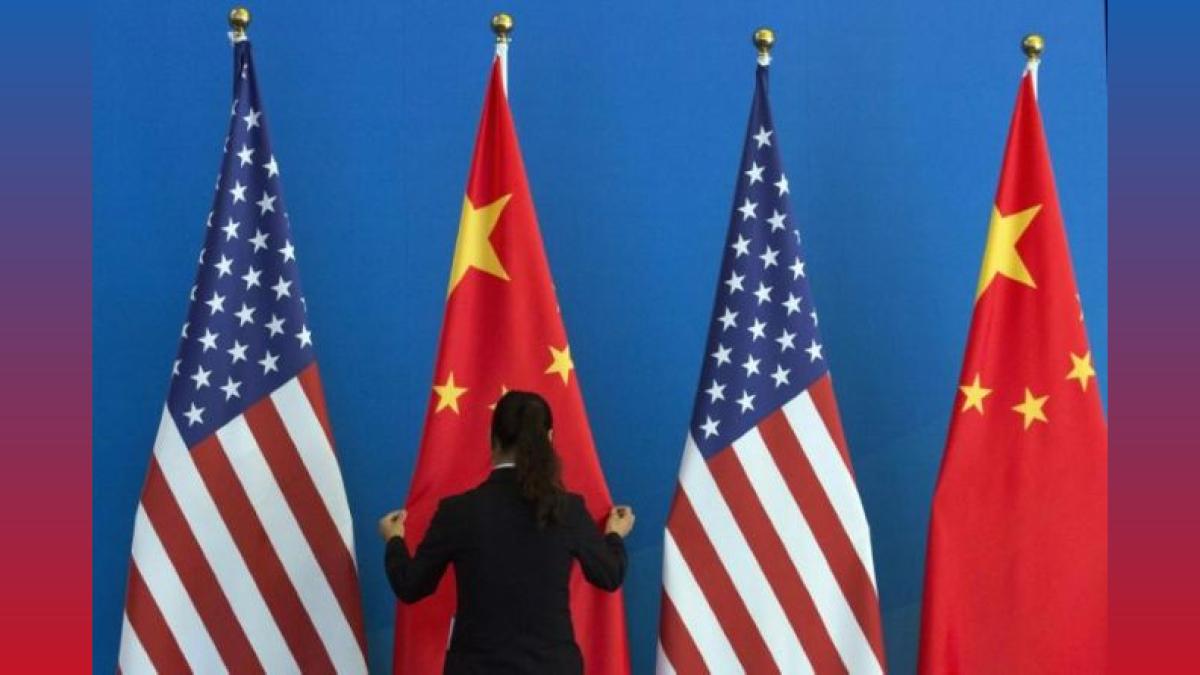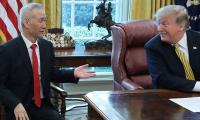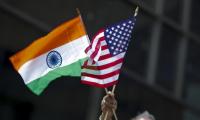India Not 'Abuser' of Tariffs, Trump's Claims Unfair: GTRI
GTRI refutes former US President Donald Trump's claims that India is an 'abuser' of import tariffs, citing WTO data showing high US tariffs on various products. The think tank argues that Trump's accusations are unfair and ignore the overall tariff landscape.

New Delhi, Sep 20 (PTI) Former US President Donald Trump's recent claim that India is an "abuser" of import tariffs is unfair as many nations including America protect their domestic industries by imposing high customs duties on certain products, think tank GTRI said on Friday.
It said that according to WTO's World Tariff Profiles 2023, the US also imposes high duties on items like dairy products (188 per cent), Fruits and vegetables (132 per cent), Coffee, tea, cocoa and spices (53 per cent), Cereals and food preparations (193 per cent), Oilseeds, fats and oils (164 per cent), beverages and tobacco (150 per cent), Fish and fish products (35 per cent), Minerals and metals (187 per cent), and Chemicals (56 per cent).
These numbers demonstrate that the US also protects specific products of its economy with high tariffs, GTRI said in a report.
While India does impose high tariffs on certain items, including wines and automobiles, the Global Trade Research Initiative (GTRI) argued that these figures do not represent the overall tariff landscape.
"Trump's argument singles out products with the highest tariffs while neglecting the average and trade-weighted tariffs that better represent India's trade policy," he said.
On September 17, Trump called India an "abuser" of import tariffs, a claim that echoed his October 2020 statement labelling India the "Tariff King".
"While it is true that India imposes high duties on select products, Trump's argument overlooks essential context, making his accusations unfair," GTRI Founder Ajay Srivastava said, adding that many nations protect domestic industries by imposing significant tariffs on certain items.
India's average tariff rate of 17 per cent is higher than the US's 3.3 per cent, but similar to other major economies like South Korea (13.4 per cent) and China (7.5 per cent).
It also said that India has demonstrated its openness to free trade by removing customs duties for imports from FTA (free trade agreement) partners such as ASEAN (Association of South East Asian Nations), Japan, and South Korea.
"However, despite India's willingness, the US has been reluctant to reduce tariffs through FTAs. This hesitation is clear in the Indo-Pacific Economic Framework, where no tariff cuts were included, reflecting the US's cautious approach," Srivastava said.
If the US is keen on zero tariff access into the Indian market, it should consider negotiating a free trade agreement with India, he added.
"While India needs serious tariff reforms, the label of 'Tariff King' does not hold up when compared to the tariff practices of the USA and other major economies," he added.
Further, he said that Trump does not talk about average tariffs but singles out products with the highest tariffs charged by India.
"For example, on Jan 24, 2019, he said India charges a high 150 per cent import tariff on the US whiskey. Sure enough, India imposes high duties on many items. 150 per cent on whiskey and wines 100-125 per cent on automobiles. But India is not alone in doing so," the GTRI said.
In reality, it said, most countries have high tariffs on a few goods such as Japan (457 per cent), Korea (887 per cent) and the US (350 per cent).
Explaining the realms behind these high duties, Srivastava said that most countries charge high tariffs on a few items with a reason.
"Japan may like to protect its rice farmers, the US its tobacco farmers and India its growing wine industry. Yet high tariff items do not represent the tariffs at which actual trade happens for most items. Average tariff and trade weightage tariff better represent a country's tariff profile," he added.
It said that according to WTO's World Tariff Profiles 2023, the US also imposes high duties on items like dairy products (188 per cent), Fruits and vegetables (132 per cent), Coffee, tea, cocoa and spices (53 per cent), Cereals and food preparations (193 per cent), Oilseeds, fats and oils (164 per cent), beverages and tobacco (150 per cent), Fish and fish products (35 per cent), Minerals and metals (187 per cent), and Chemicals (56 per cent).
These numbers demonstrate that the US also protects specific products of its economy with high tariffs, GTRI said in a report.
While India does impose high tariffs on certain items, including wines and automobiles, the Global Trade Research Initiative (GTRI) argued that these figures do not represent the overall tariff landscape.
"Trump's argument singles out products with the highest tariffs while neglecting the average and trade-weighted tariffs that better represent India's trade policy," he said.
On September 17, Trump called India an "abuser" of import tariffs, a claim that echoed his October 2020 statement labelling India the "Tariff King".
"While it is true that India imposes high duties on select products, Trump's argument overlooks essential context, making his accusations unfair," GTRI Founder Ajay Srivastava said, adding that many nations protect domestic industries by imposing significant tariffs on certain items.
India's average tariff rate of 17 per cent is higher than the US's 3.3 per cent, but similar to other major economies like South Korea (13.4 per cent) and China (7.5 per cent).
It also said that India has demonstrated its openness to free trade by removing customs duties for imports from FTA (free trade agreement) partners such as ASEAN (Association of South East Asian Nations), Japan, and South Korea.
"However, despite India's willingness, the US has been reluctant to reduce tariffs through FTAs. This hesitation is clear in the Indo-Pacific Economic Framework, where no tariff cuts were included, reflecting the US's cautious approach," Srivastava said.
If the US is keen on zero tariff access into the Indian market, it should consider negotiating a free trade agreement with India, he added.
"While India needs serious tariff reforms, the label of 'Tariff King' does not hold up when compared to the tariff practices of the USA and other major economies," he added.
Further, he said that Trump does not talk about average tariffs but singles out products with the highest tariffs charged by India.
"For example, on Jan 24, 2019, he said India charges a high 150 per cent import tariff on the US whiskey. Sure enough, India imposes high duties on many items. 150 per cent on whiskey and wines 100-125 per cent on automobiles. But India is not alone in doing so," the GTRI said.
In reality, it said, most countries have high tariffs on a few goods such as Japan (457 per cent), Korea (887 per cent) and the US (350 per cent).
Explaining the realms behind these high duties, Srivastava said that most countries charge high tariffs on a few items with a reason.
"Japan may like to protect its rice farmers, the US its tobacco farmers and India its growing wine industry. Yet high tariff items do not represent the tariffs at which actual trade happens for most items. Average tariff and trade weightage tariff better represent a country's tariff profile," he added.
You May Like To Read
TODAY'S MOST TRADED COMPANIES
- Company Name
- Price
- Volume
- Vodafone-Idea-L
- 11.34 (+ 0.80)
- 39830609
- Mangalam-Industrial
- 0.93 (+ 3.33)
- 13641397
- Harshil-Agrotech
- 0.60 (+ 7.14)
- 12056884
- Pradhin
- 0.27 (+ 3.85)
- 11821735
- Welcure-Drugs-and
- 0.52 (+ 4.00)
- 9226516






